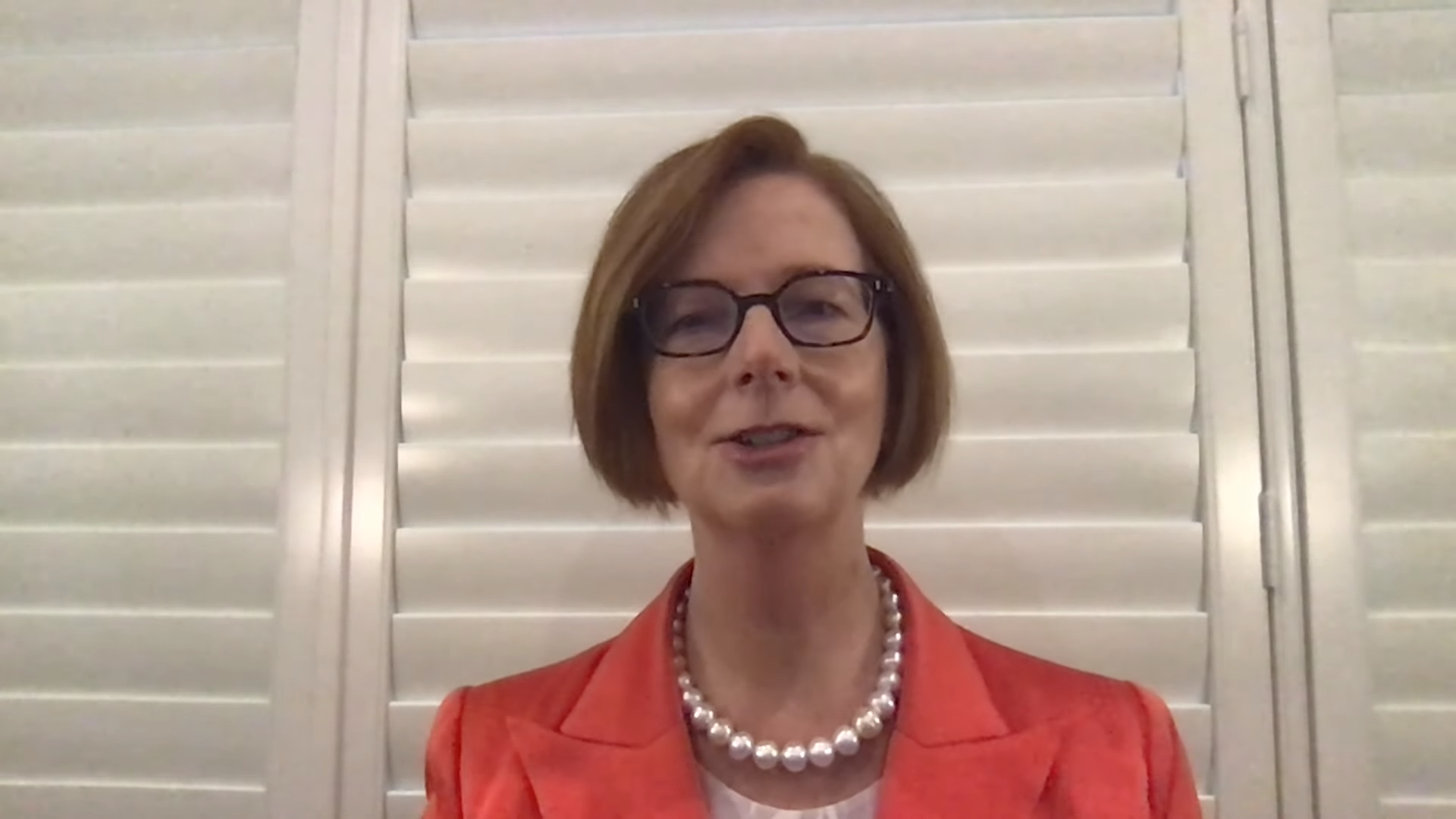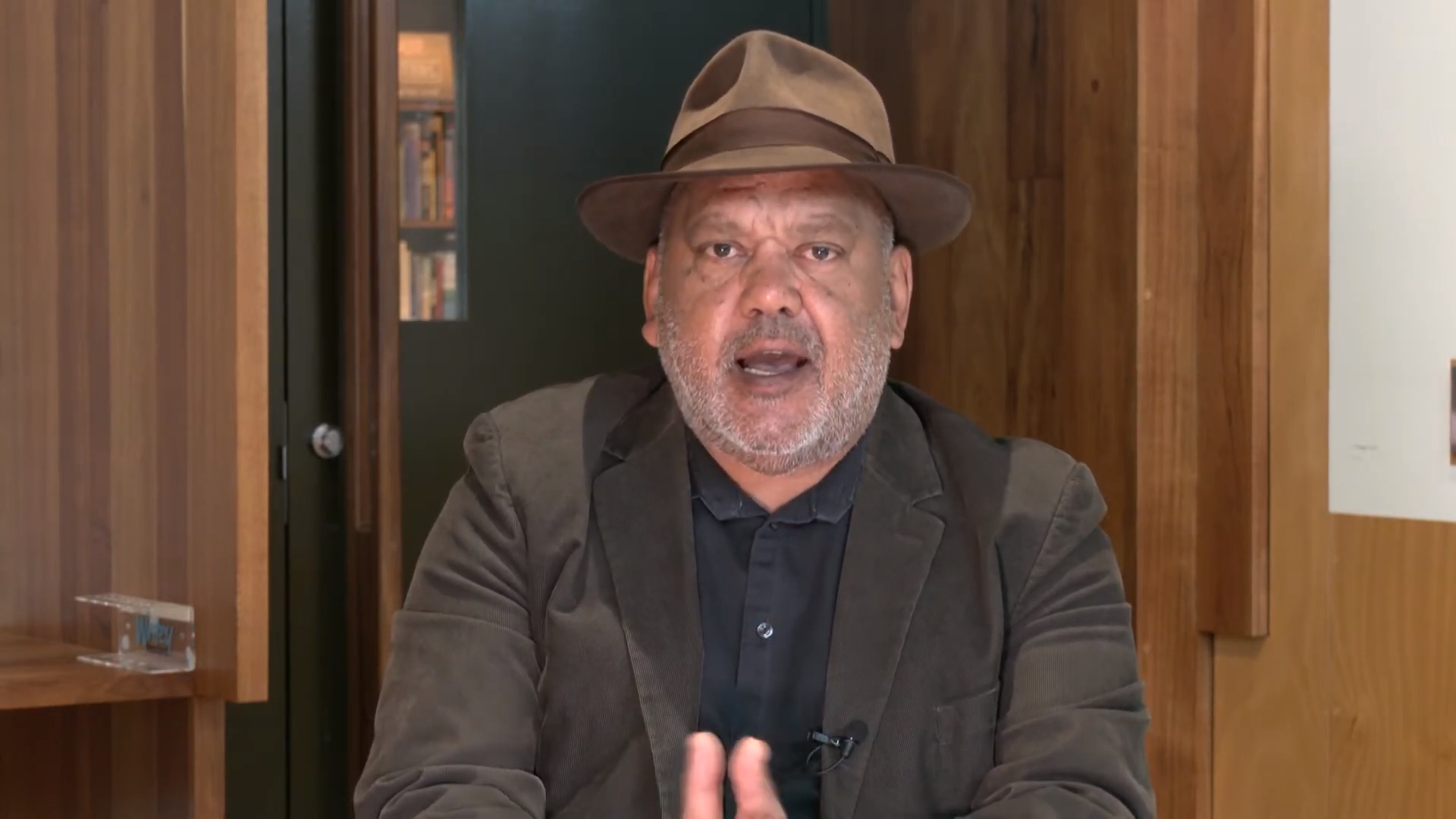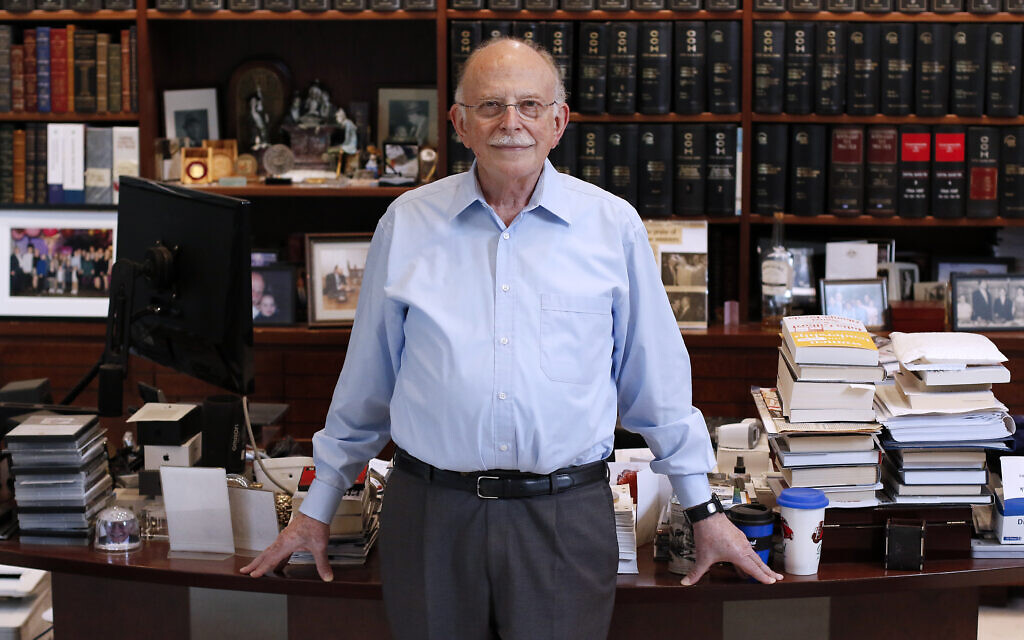Mark Leibler: The powerbroker and gatekeeper
Former prime minister Julia Gillard this week launched The Powerbroker, a new biography about communal stalwart Mark Leibler, his ‘lobby’ and their legacy.
ENGAGING with Mark Leibler, “you would never die wondering what he thought”, quipped Julia Gillard about one of the most direct, at times abrasive, titans the Australian Jewish community has ever produced.
Gillard’s one-liner, in The Powerbroker, a frank biography of Leibler by Michael Gawenda, former editor of The Age and of Time (Australia), was repeated by the former PM in launching the book online on Monday with Indigenous activist and lawyer Noel Pearson.
Gillard, whose foreign ministers Kevin Rudd and later Bob Carr nursed controversial views of the Middle East, had been among Australian leaders on the receiving end of what she called “Mark’s fundamental forthrightness”. And yet she shares a bond of mutual respect and admiration with Leibler, evolving from their dance as PM and communal grandee. Leibler, she said, always displayed “a care and concern about me as a human being”.
In her address, describing Australia’s – especially Melbourne’s – Jewish community, as steeped in “suffering and hope”, Gillard saw Leibler as “both a product of and a shaper of this community”.

For Pearson, Leibler became a mentor and role model who stood up to racism, whose Jewish community had experienced the Shoah, and who reached out from “the communal hearth” to “engagement in the wider world”.
Gawenda told The AJN he had been hoping to pursue a personal passion for writing Yiddish poetry. But then came the chance to profile Leibler, an astute lawyer and voracious networker, a former Zionist Federation of Australia president who became chairman of the Australia/Israel & Jewish Affairs Council (AIJAC), and took a leading role in Indigenous reconciliation. Gawenda found he could not resist wading into the Leibler project.
“We were contemporaries in terms of age, we had similar backgrounds,” he said, noting his and Leibler’s families endured the Holocaust. “We both grew up in a unique community at a unique time – but our lives as Jews were totally different.” Gawenda’s upbringing was in secularist Bundism and Leibler’s in religious Zionism.
Gawenda was emphatic he would not have written on Leibler without access to him and would not have accepted access without editorial independence.
Former PM @JuliaGillard launches Michael Gawenda's #biography of @LeiblerMark, The Powerbroker. To view the full launch click here: https://t.co/V6ydgxouC8 pic.twitter.com/HnstxPZSMJ
— Arnold Bloch Leibler (@ABLLaw) July 21, 2020
Although Leibler had been reluctant at first, he agreed to terms negotiated by his son Jeremy Leibler, and Gawenda and Mark Leibler discussed those terms before interviews began. “Mark stuck to that agreement,” Gawenda told The AJN, and over the two years it took, the pair developed “a robust relationship”. What did Leibler think of the book? “It would be fair to say he had some issues with some of my judgments.”
Gawenda said in today’s Jewish community, there are no “gatekeepers” like Mark and his brother Isi Leibler, a Jewish communal giant now living in Israel, because social media has unleashed a diversity of voices. Moreover, modern families would not tolerate a leader devoting so much time to public life.
He was fascinated by Leibler’s midlife metamorphosis into a champion of law reform for Indigenous Australians after devoting himself almost solely to the Jewish community in which he had grown up and worked.
“In some ways it was so unexpected,” he said of his subject, a figure who became the confidante of Australian prime ministers, foreign ministers and treasurers; an incisive, persuasive tax lawyer, whose firm, Arnold Bloch Leibler (ABL) had as its early clients Jewish businessmen finding their feet in their adopted Australia. Leibler “understood what it meant to be the subject of historical injustices … I think he went through a transformation both as a Jew and as an Australian.”

When Leibler was asked why he had not arranged an authorised biography, he told The AJN, “I don’t think it would have been as good a book … it’s better to have someone look at your life objectively.”
Pressed for a career highlight, he picked his unlikely friendship with then ALP foreign minister Bill Hayden, whose support for Israel was initially lukewarm but who would later steer through Parliament the bilateral motion demanding a repeal of the UN’s notorious “Zionism is a form of racism” resolution.
Asked which leader surprised him most, Leibler named Paul Keating (who he first met as treasurer over tax issues, as he had met Liberal treasurer John Howard). Keating publicly “always came across as a head basher” but in private is “a delightful human being”. Gillard, although from Labor’s socialist left faction, always assessed Israel’s case “on its merits”.
What would Leibler do differently now? He paused, then offered, “I’ve mellowed a bit. I think I could have done without some of the aggression from the early days and probably still achieved the same objectives.”
"The first lesson I learnt from the #Jewish community in #Melbourne & from its leaders like Mark is the imperative to be vigilant against #racism" – Noel Pearson during the #booklaunch of a biography on @LeiblerMark "The Powerbroker" https://t.co/3N5k5Ajlez
— AIJAC (@AIJAC_Update) July 22, 2020
Prompted over his embrace of Indigenous rights, which began when the late Ron Castan QC asked ABL to take on the Yorta Yorta test case for Indigenous land claims, and Howard, as PM, appointed him to chair Reconciliation Australia, Leibler decried the country’s relationship with its first inhabitants as “a blot on Australia”.
He confidently predicted a representative council, outlined in the Uluru Statement of the Heart, will become reality. And why did he become involved in the plight of Aborigines? “We, the Jews, understand suffering, we understand pogroms, we’ve been through the Holocaust. We’ve got an obligation to help … to give back.”
See extracts from The Powerbroker in this week’s AJN.
Read more: A unique insight into a communal legend
Get The AJN Newsletter by email and never miss our top stories Free Sign Up


comments